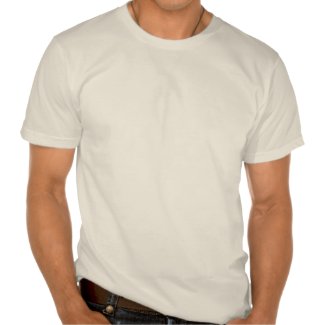 William Powell and fog-horned voiced character actor, Eugene Pallette in The Kennel Murder Case.
William Powell and fog-horned voiced character actor, Eugene Pallette in The Kennel Murder Case.TCM recently showed a Philo Vance marathon featuring films from the thirties about this fictional detective all made by Warner Bros./Vitaphone. The movies are enjoyable if slight--most of the films clock in at a lean, mean 75-80 minute length. The studio employed a string of actors including William Powell, Basil Rathbone, Warren William, Paul Lukas, Edmund Lowe, Wilfrid Hyde-White and Grant Richards in the 1930s alone. There was another series of Philo Vance films in the 1940s, which I haven’t seen.
The closest thing we have in our times to the Philo Vance phenomenon is the British TV series Doctor Who which continues to survive decades into its run by replacing the leading actor every once in a while. Like Doctor Who, each of the actors I watched in the series brought their own spin to the character.
By far the most enjoyable Philo Vance movie of the three I watched was The Kennel Murder (1934) case, starring William Powell. His fourth and final Vance outing, Powell was on the cusp of major stardom. The next year he played Nick Charles in The Thin Man. Powell has same charm he has in the later more famous detective series all the while hiding a sharp mind with a soft-easy going manner. While he lacks a Myrna Loy with whom to trade witty lines, or indeed witty lines, he does have a cute Scotty Dog, who is perhaps the inspiration for Asta. This movie seemed more lavishly produced than the other two movies I watched. It’s possible that since it was the latest of the three chronologically, the budgets had increased, but it’s equally possible that it was all just Powell’s superior star power rubbing off on the flimsy sets.
Warren William had an enjoyable outing as Vance in The Dragon Murder Case, about an absurd homicide in which the chief suspect is a mythological giant lizard. Like Powell he was more famous for playing a different detective in a later series, The Lone Wolf. If the X-files existed in 1933, The Dragon Murder Case, would definitely be a candidate for a plot scenario. Unfortunately the whole thing unfolds with a rather Scooby Doo obviousness where as The Kennel Murder case was so busy and confusing you were guessing till the last minute because the plot was so byzantine. Maybe I’m being unfair here. Perhaps if I was watching it in 1933, and had not spent my childhood watching Scooby Doo, I would have been delightfully surpised by the denouement of The Dragon Murder Case.
Basil Rathbone’s lone Philo Vance picture was The Bishop Murder Case (1930). This series was a detective training ground because like the other two actors mentioned here, Rathbone was about to become a lot more famous by playing another well-known detective, Sherlock Holmes. In between playing Vance and Holmes he was best known for playing the stereotypical English bad guy in Errol Flynn movies. I’ve always enjoyed Rathbone as an actor, but something about him in The Bishop Murder Case just didn’t click for me. The stand-outs in the supporting cast, Roland Young and George F. Marion, perhaps took something away from my enjoyment of the detective. Marion in particular plays an eccentric chess master who lives with his ancient sister and spends his evenings skulking around in dark corners. Rathbone can't compete with this kind of a show-stopping villain. He doesn't have the eccentric flair needed to play a great detective, or even Doctor Who. He moved workmanlike through the plot like perhaps the Second Doctor or the Eighth might have, but without the droll, self-aggrandizing panache of a Fourth or a Tenth Doctor. I apologize for getting off course here and contaminating my post with obscure references to an obscure English television show. I’ve just spent the last week deeply immersed at a science fiction and fantasy convention, which is why I haven’t posted much lately.
I look forward to watching the rest of Philo Vance movies waiting in my tivo queue. It's likely that I will shove the posts into the media room though, unless I'm blown away by one of the remaining pictures.





5 comments:
I'm a fan of the Philo Vance books and the early series does them justice. The 1940's series is to them as the Bowery Boys is to the Dead End Kids (at least that makes sense in my mind). My favorite series - detective even! - with differing actors is the Charlie Chan films, as it's interesting to see the different takes on what's "Chinese."
I love the early Philo Vance movies-- you're right, The Kennel Murder Case is one of the best. Also really good is The Canary Murder Case and The Greene Murder Case. :)
Wasn't there a Scooby Doo episode about a fake dragon?
Regarding Basil as Philo Vance. I think perhaps you are mistaken in saying Basil doesn't have an eccentric flair to be a great detective. I think he certainly had it as Holmes, a most eccentric character. What he didn't have as Vance was a good Watson. Nigel Bruce was his perfect foil. I would say that if he lacked something as Vance, it was the witty sophistication of William Powell and the droll cheekiness of Warren William. It's nice to have the Basil version of Vance if for no other reason than to realize how wonderful Powell and William were.
The Kennel Murder Case is definitely the superior of the three TCM showed--and I am NOT just saying that because I was Myrna Loy in a former life. ;)
And I happened to LOVE the obscure British TV show reference. I don't know where in the world you happen to habitat, but if perchance it happens to be in southern california then I am sure you are aware of David Tennant coming to Comic Con in San Diego this month ...
Nicely done. However, William Powell was already a well known player in Hollywood by 1934, and not, as you suggest, 'on the cusp of stardom'. His screen credits begin in 1922 and while his rise to stardom did come playing Philo Vance, the film was "The Canary Murder Case", in 1927, in which he investigates the murder of Louise Brooks. Cheers!
Post a Comment